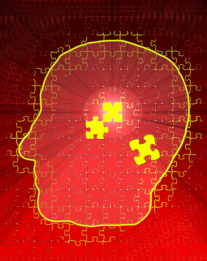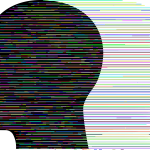
Alzheimer’s and Lewy Body Dementia – Explaining the Difference:
Alzheimer’s and Lewy Body Dementia are both types of progressive dementias, but they have distinct differences in terms of causes, symptoms, progression, and treatment.
Both conditions are complex, and the exact cause and progression can vary from person to person.
Early and accurate diagnosis is crucial for appropriate management and care.
Here are the main differences between Alzheimer’s and Lewy Body Dementia:
| Alzheimer’s Disease | Lewy Body Dementia (LBD) | ||
| Cause and
Pathology |
The brain shows the presence of beta-amyloid plaques and tau tangles, which interfere with neuronal communication and function. | The primary pathological feature is the presence of Lewy bodies, which are abnormal protein deposits (alpha-synuclein) in the brain. These deposits disrupt the brain’s normal functioning. | |
| Symptoms |
|
|
|
| Progression | Typically has a gradual onset and progression, starting with mild memory loss and advancing to severe cognitive impairment. | The progression can be more rapid than Alzheimer’s, and the symptoms can fluctuate more frequently. | |
| Diagnosis | Diagnosis is primarily based on clinical evaluation, neuropsychological testing, and ruling out other causes. Imaging tests can also be used. | Diagnosis can be more challenging due to the overlap of symptoms with Parkinson’s disease and the fluctuating nature of symptoms. | |
| Treatment | There are FDA-approved medications that can temporarily improve symptoms or slow their progression. These include cholinesterase inhibitors and memantine. | Treatment focuses on managing symptoms. Some Parkinson’s disease medications can be effective, but individuals with LBD may be more sensitive to antipsychotic medications, which can worsen symptoms. | |
| Prevalence | It’s the most common cause of dementia, accounting for 60-80% of dementia cases. | It’s the third most common cause of dementia after Alzheimer’s and vascular dementia. | |
Regardless of the type of dementia diagnosed, the adapted Montessori method for the cognitively impaired is the scientifically proven method for interacting and engaging with those afflicted. The research has shown many benefits to introducing a Montessori approach in the care of individuals with dementia. Browse a selection of published research supporting the work of the Center for Applied Research in Dementia.
 Over 30 years ago Dr. Cameron J. Camp, PhD – Director of Research & Development for the Center for Applied Research in Dementia in Ohio, adapted the method based on Dr. Maria Montessori’s approach to teaching children.
Over 30 years ago Dr. Cameron J. Camp, PhD – Director of Research & Development for the Center for Applied Research in Dementia in Ohio, adapted the method based on Dr. Maria Montessori’s approach to teaching children.
Mark Norris, Director and Founder of the Montessori Alzheimer Center was personally trained by Dr. Camp and the Montessori Alzheimer Center is the Canadian Training Partner for the Center for Applied Research in Dementia.
Like us on Facebook!





